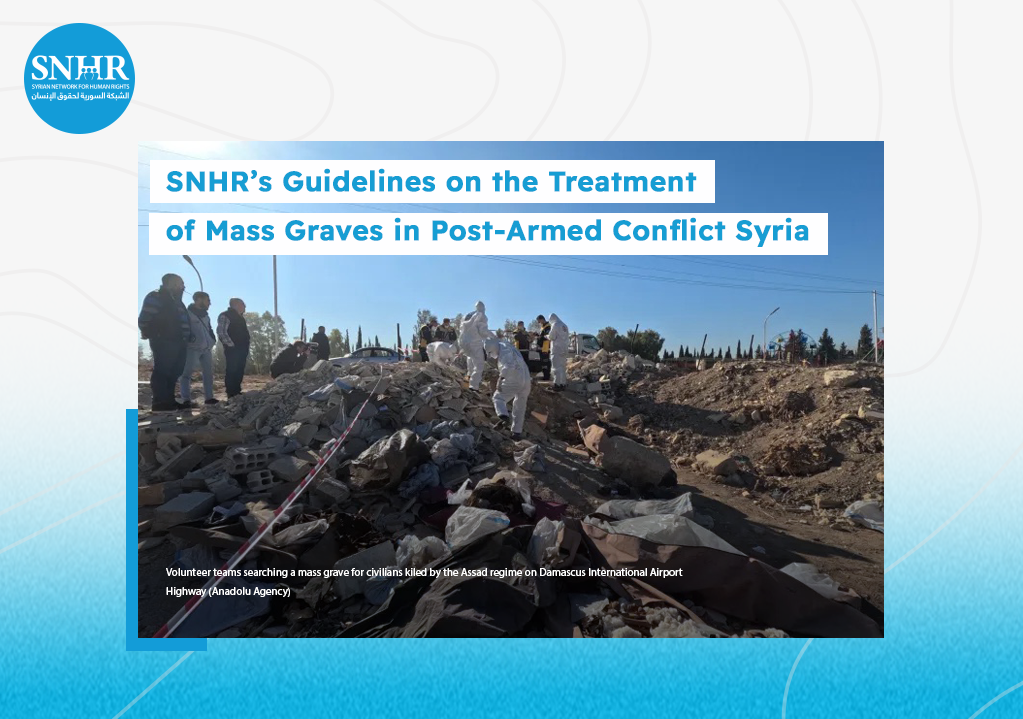
Available In
The Hague – The Syrian Network for Human Rights (SNHR)
Addressing the issue of mass graves in the aftermath of armed conflicts is a legal and humanitarian challenge that requires a nuanced approach grounded in the principles of international humanitarian law, international human rights law, and international criminal law. The following guidelines have been proposed by the Syrian Network for Human Rights (SNHR) to ensure that this issue is handled in a way that shows the utmost respect for the dignity of the deceased, achieves justice for the victims, and ensures that the perpetrators are held accountable. These guidelines are primarily addressed here to the new government in Syria, to media outlets, and to the Syrian people.
- Protect and preserve mass graves
- Prevent tampering and desecration: Mass graves must be protected against any tampering or unauthorized access, since they are both crime scenes and key articles of evidence in legal and criminal investigations.
- Document sites and install landmarks: Sites of mass graves must be recorded and marked with clear landmarks to ensure they are protected and readily accessible for investigation purposes.
- Respect the dignity of the deceased: Victims’ bodies and all human remains must be treated with respect and dignity, ensuring no disfigurement or desecration, in accordance with international law.
- Investigation and ensuring accountability
- Conduct independent and transparent investigation: To ensure complete accountability, it is of paramount importance that all investigations be conducted in an effective and open manner, in accordance with international human rights obligations.
- Collect criminal evidence: Mass graves usually contain conclusive evidence of the commission of war crimes or crimes against humanity. As such, they must be examined completely, thoroughly and meticulously to document evidence, in order to meet the relevant legal standards.
- Identify victims and return their remains to their families
- Identify the deceased: Tools for criminal analysis and DNA tests, and other relevant technologies must be utilized to correctly identify the victims. This is a vitally important step on the path towards achieving justice for victims’ families and clarifying the fate of their loved ones.
- Return victims’ remains to families: The victims’ remains must be returned to their families or local communities to give them the opportunity to hold proper and dignified burials in whatever manner they feel appropriate according to their religious and cultural norms.
- Legal obligations and international frameworks
- The Bournemouth Protocol on Mass Grave Protection and Investigation: This protocol serves as a key reference, providing clear guidance on how to protect mass graves, while underlining their crucial role in achieving justice and reconciliation, and uncovering the truth.
- The wider community and humanitarian considerations
- Right to find out the truth and attain justice: Victims and communities have the right to know the truth about the fate of their loved ones. Protecting mass graves also supports the processes of community recovery and of addressing the grievances caused by grave violations.
- State responsibility: The new Syrian government bears responsibility for the investigation of mass graves in all areas under its jurisdiction or control, while also focusing on fully cooperating with the relevant international bodies, when required.


